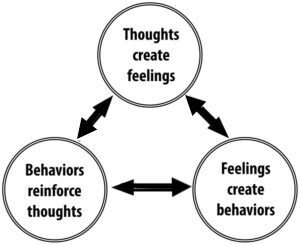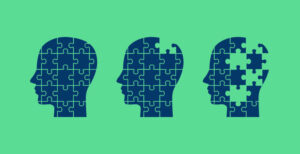Therapy. It’s a word that has been thrown around for years, but many people still don’t understand what it is. As I’m sure you know, therapy can be used to help with mental health problems like depression and anxiety disorders. But how does it work? What are the different types of therapy? And who should go to therapy in the first place? These are all questions we’ll answer today!
Contents
- 1 What Is Therapy?
- 1.1 Categories Of Therapy
- 1.2 Types Of Therapy
- 1.3 Cognitive Behavioral Therapy
- 1.4 Interpersonal Therapy
- 1.5 Family or couples therapy
- 1.6 Group therapy
- 1.7 Who Should Go For A Therapy?
- 1.8 Stages Of Therapy
- 1.9 The Goal Of Therapy
- 1.10 Potential Side Effects Of Therapy
- 1.11 Therapy vs Medication
- 1.12 Reaching Out To Others For Help
- 2 Conclusion
What Is Therapy?
Therapy, also known as psychotherapy, is the process of talking about your thoughts and feelings with a mental health professional. This can help you understand yourself better and find solutions to problems. It can be useful for people who are coping with stress, anxiety, depression, or other emotional difficulties.
Categories Of Therapy
There are many different types of therapy, but they can be generally divided into two categories: Physical Therapy and Mental Therapy.
- Physical Therapy: This type of therapy is used to treat the body and manage pain.
- Mental Therapy: this type of therapy can help people with mental health problems like anxiety or depression. It’s also known as psychotherapy, counseling, behavioral therapy, talk therapy, couples’
Types Of Therapy
There are many different types of therapy that you can talk about with your therapist. The most common types are:
- Cognitive Behavioral Therapy (CBT), which helps people understand how thoughts, feelings, and behaviors work together
- Interpersonal therapy (IPT)
- Family or couples therapy, where problems in relationships are discussed
- Group therapy, where a group of patients meets to discuss their issues in a supportive environment
Considerable research shows that when all the above therapies are effective for different conditions. If talking honestly about yourself makes you uncomfortable, it’s important to tell your therapist this right away. She might be able to adjust her approach so you feel more at ease during sessions. You should never feel pressured into doing anything that doesn’t feel comfortable! For example, if you don’t want to talk about a certain issue, your therapist should respect that.
Cognitive Behavioral Therapy
Cognitive Behavior Therapy (CBT) is a type of psychotherapy that emphasizes the important role of thinking in how we feel and what we do. CBT is different from other types of psychotherapy because it focuses on the “here and now”, our current problems. Other types focus on events in your past like childhood experiences and relationships with parents. This means that during treatment, people do not focus on things that happened in the past. They focus on what is happening now. It is an effective form of therapy for people with problems in their heads. People who have depression, anxiety, and other common mental health difficulties can use it to make themselves feel better.
Cognitive-behavioral therapy is when you work with a therapist to change your thoughts. You can do this by asking yourself questions and then changing your thoughts. CBT is an older form of psychotherapy that focuses on the past. It also has things in it from newer forms of therapy, which focus on changes in the present.
Benefits
Cognitive-behavioral therapy is effective with many different people. Some people are children and adolescents, adults, doctors who have their problems, couples who have difficulties in their relationship, and the elderly. It can even be done effectively over the phone or internet for those who are located in remote areas or currently incarcerated.
Cognitive-behavioral therapy teaches you ways to do things so that you can feel better today. It does not matter what happened in the past. Rather than thinking about changing yourself or other people, this book focuses on how you react to certain behaviors and thoughts. If you don’t feel better after changing these reactions, the therapist will find out what kind of thinking patterns are making you feel bad.
Challenges
Some people who have been through a lot in their lives may not be able to figure out why they are hurting without first looking back. If your partner is late coming home, you might remember another time when your partner was late and how it made you feel. Or you might think that it means that something is wrong with the relationship. This can be upsetting even though logically it does not make sense to compare these two situations. If this becomes too challenging for you in CBT, an alternative treatment approach might be more suitable at this time.
Interpersonal Therapy
Interpersonal therapy, also known as IPT is cognitive-behavioral psychotherapy that was initially developed in the 1970s to treat depression. Since then it has been used to treat other mental health issues such as anxiety and eating disorders. The main focus of IPT is on the patient’s interpersonal relationships with their family, spouse, friends, or co-workers. Therapy is when you learn how to solve your problems. You can do this by looking at how to fix your relationships with other people.
History
The history of IPT dates back to the early ’70s when Dr. Gerald Klerman first conceptualized this form of psychotherapy. It was developed by two psychiatrists, Dr. Gerald Klerman and Dr. Myrna Weissman at Columbia University in New York City. The doctors used the medicine to help people with depression, and most people with depression had troubles in their life.
IPT has its roots in psychoanalysis and cognitive-behavioral therapy (CBT). This type of therapy focuses on current problems. It is not about what happened in the past. A therapist can learn about a person’s thoughts from what they say. This helps the therapist understand their problems better. The cognitive-behavioral theory focuses on learning new ways to think which in turn will help change your behavior. An example of CBT is when someone who is depressed does not believe they will get better. They think the past has shown them that this will always happen. A therapist can work with them to introduce new thoughts and ideas so it becomes stronger than their old thoughts.
Benefits
- It helps patients understand and treat their depression more quickly than with other treatments on their own. People with mental illnesses can get better by taking psychotherapy. They don’t need to take antidepressants anymore because they are no longer sick. The medicine also works faster than some other types of medicine used to do.
- This type of therapy reduces feelings such as anxiety and sadness before they worse and turn into serious things like depression.
- It helps people with mental illness keep their job, relationships, and family they have. This is so they can live a normal life again.
- Research has shown that this type of therapy works very well for many different types of problems. These include depression, anxiety, eating disorders, and chronic pain. But it does not work as well for ADHD or pervasive developmental problems.
- The research shows that this form of psychotherapy also gives the same level of help for men and women who are depressed because it uses practical ways to think about yourself, other people in your life, and how you interact with them all at once. This makes it unusual compared to other types of psychotherapy which usually focus on just one part at a time.
Challenges
- It only works well when the therapist knows the patient well.
- This requires at least 50 minutes spent per week for between 12 to 18 weeks.
- The cost is about $1,000 or more for each session.
Family or couples therapy
The family therapy group is composed of two therapists and eight to twelve patients and their families. One day a week the patients meet with the therapists as a group; one-half day each week they attend sessions in individual therapy.
Benefits
Some patients are scared to have someone in their session. But all of the people who were in our group said they were glad they did it. Many say they cannot imagine going through recovery without family support.
With time, the therapist and the patient figure out which relationships are important for recovery. They also figure out which ones should be changed. Therapists can help people change relationships. The therapist and the person may plan a new way to do this during treatment. Thus, family or couples therapy is an essential part of treatment at The Meadows because it helps us accomplish two major goals:
- To help every patient develop independent thinking about her own addiction;
- To teach specific ways to improve key relationships with spouses, parents, and children.
Challenges
In a family or couples therapy group, patients may initially reject the idea of bringing their partner into the session. They often say things like: “He won’t come.” Or “She doesn’t need treatment!” But we will not stop pushing for both people to attend sessions. Doctors make sure to ask patients’ families if they can come to see them during their treatment. If it is important for the patient’s recovery, the doctor will call before each session to see if they can come.
In Family or Couples Therapy, patients may feel blamed for the problems in the relationship. They might become defensive about their partner. The big problem is that patients may feel defensive about their partners if they think they are being blamed for the problems in their relationship. Even though therapists do not blame any one person, some patients will think they could never have a relationship with someone who has a problem.
This group is a two-edged sword. It can work to improve relationships, but it can also cause problems if patients feel blamed for their loved ones’ addictions. We must explain the facts of addiction. Patients need to understand that they are not responsible for their spouse’s or family member’s addiction; however, they do share responsibility for the relationships in their lives.
Group therapy
In a group therapy session, a therapist leads a group of patients in a discussion about their reactions to similar life events. People in group therapy help each other. The therapist helps them work on their problems. Group therapy is often used for things like addiction and depression. If you have been going through something difficult recently, you might want to go to a group therapy session.
Group therapy is a form of psychotherapy where people share their experiences. This is because you can get advice from other people who have had similar experiences. Sometimes you need to talk to someone who understands what you are going through. In that process, they find new perspectives on their difficulties, learn more about themselves and the resources available to them.
If you have a friend who has been going through a difficult time, they might benefit from a group therapy session. If the therapist thinks it would help, you can attend the sessions with your friend. Group therapy is sometimes used for addiction and depression disorders. You should speak to your doctor before attending group therapy if you have depression or an addiction disorder.
Benefits
Group therapy sessions are used by mental health professionals to address the social and emotional problems of people. The benefits include:
- Increased rate of improvement
- Reduced relapse rates
- Decreased need for medications or other kinds of treatment
- Lower drop-out rates
- Increased empowerment, increased sense of control over life situations
- Improved self-esteem
- Ability to develop new social support networks
- Reduction in interpersonal conflict
- Better quality relationships with family members and significant others
- Greater knowledge about strengths and resources available to them
- Therapy can help make people feel more comfortable talking about their feelings.
Challenges
The challenges include:
- Counselors might not be able to spend enough time with each patient. This can mean that some people do not get the help they need.
- In group therapy, patients might be embarrassed talking about their feelings in front of other people. In addition, there is a risk of being judged by others when sharing experiences.
- There is a risk that one person in the group might take too long to talk or never let anyone else talk.
Who Should Go For A Therapy?
- Therapy is not just for people who are seriously ill. Therapy can help anyone who wants to deal with problems in their life or achieve personal growth.
- People might choose to see a therapist because they feel sad, anxious, guilty, lonely, tired, and ashamed most of the time. They may also be having trouble sleeping at night (insomnia), have lost their appetite, or feel like they are unable to enjoy life.
- If you are feeling any of these things, it is important to speak to a therapist. They will be able to provide you with the support that you need. You should also go for therapy if you have been through a traumatic experience, such as sexual abuse or violence.
- If you are the relative or friend of someone with an addiction, it is important to go for therapy. You need to understand that you are not responsible for your loved one’s addiction; however, you do share responsibility for the relationships in your life. Group therapy can be a great way for you to get support from other people who have been
Stages Of Therapy
- The first stage of therapy is usually the most difficult. This is when you and your therapist are getting to know each other and trying to figure out what’s wrong. It’s normal to feel anxious or overwhelmed in this stage.
- The second stage is often when people start to see results from therapy. You’ll start to understand your problems more fully and work on strategies to address them.
- In the third stage, you’ll continue working on problem-solving but will also start to apply these skills outside of therapy.
- In the fourth stage, you’re likely to experience long-term changes as a result of therapy. These might include feeling better about yourself, developing healthier relationships, and achieving goals that once seemed impossible.
- This final stage of therapy is the time to work on maintaining your progress and continuing towards a healthier future.
The Goal Of Therapy
The goal of therapy is to help you feel better and more in control of your life. This might mean working through difficult emotions or gaining new insights into yourself. With time and effort, therapy can be an extremely effective tool for improving mental health and well-being. If you’re considering seeking therapy, here are some things to keep in mind:
- Therapy isn’t a quick fix
- It takes time and commitment to see results
- Not all therapists are right for everyone
- You need to find the therapist who’s best for you
- Sessions aren’t free, but most insurance plans them
Therapy can be a powerful tool for real change in your life.
Potential Side Effects Of Therapy
Therapy is a process that can have many benefits, but it’s important to be aware of potential side effects. Some people may experience increased anxiety or depression in the early stages of therapy. This is usually temporary and should lessen as you get further into treatment. Other possible side effects include:
- Feeling overwhelmed or stressed: Therapy can help people understand their feelings better, but this might also bring up difficult emotions.
- Feeling worse about yourself: It’s common to feel worse before you feel better in therapy. This is because you are starting to understand your problems more fully.
- Having conflicts with your therapist: It’s important, to be honest with your therapist, but sometimes difficult emotions arise. This is normal and should improve over time.
- Feeling like you can’t trust them: Therapy is based on trust, so it’s normal to feel like you can’t fully open up. You might be afraid of how they’ll react.
- Feeling worse about your life: Therapy can help you see the causes of problems in your life, which might make them seem more difficult to deal with.
- Having difficulty discussing painful memories or feelings: Therapy can help you process difficult emotions, but some people are more comfortable working through their feelings on their own.
- Trying to avoid or minimize the pain of therapy: Some people may try to avoid their feelings or the therapist altogether. This can be a sign that therapy is not right for them.
- Becoming dependent on the therapist: It’s natural to feel like you can’t go through difficult times without the therapist, but this is a problem if it persists for more than six months.
- Developing an unrealistic view of the therapist: It’s common to think that your therapist can solve all of your problems. If you’re expecting them to be perfect, it’ll leave you disappointed.
- Experiencing a worsening of symptoms before getting better: In therapy, you will start to understand your problems more fully. This might cause some short-term discomfort.
If you experience any of these side effects, it’s important to speak to your therapist. They can help you work through them and may need to adjust your treatment plan. With time and patience, you can overcome these challenges and work towards the goal of feeling better.
Therapy vs Medication
Many people wonder whether therapy or medication is better for treating mental health conditions. While there are many similarities between these treatments, they are distinct in some important ways.
Therapy is unique because it focuses on your thoughts and beliefs about yourself, others, and the world around you. Therapy can help you work through difficult emotions like guilt or sadness to create positive changes in your life. It also helps give perspective on problems that might seem insurmountable without outside assistance.
The medication works by targeting chemicals in the brain that may be out of balance due to a mental health condition. Medications for depression might target serotonin levels, while those for anxiety focus more on GABA activity. These medications have been shown to ease symptoms with few side effects when taken as directed by your doctor.
Reaching Out To Others For Help
You must know that there are people in your life who care about you and want to help. Reach out to them when needed so they can be part of this journey with you.
If at any point, you feel like things might be too much for someone else to handle, don’t hesitate to get help from professionals. Therapists have been trained specifically for these situations and will offer more specialized assistance if necessary. If it feels right then consider talking to a close friend or family member as well—they may not understand everything but their support means a lot!
Avoid Self-Stigma
- It’s important to remember that you are not your mental health condition. You are a complex and unique person who is capable of overcoming any obstacle.
- One of the biggest challenges in seeking help for mental health conditions is self-stigma. This is when you view yourself in a negative light because of your diagnosis. It can keep people from getting the treatment they need or accepting help from others.
- You must work to break down these barriers and see yourself as you truly are: someone deserving of love, care, and support. With time and effort, it’s possible to overcome self-stigma and live a happy life despite your mental health condition!
Conclusion
The therapy process can be difficult and there are many ways to cope. Talk with your therapist. They will help you know what might work best for you. But don’t forget that you have an important role in the process too! Your thoughts and emotions are important for treatment to work. You need to be open about them the whole time, or it will not work. Therapy isn’t always easy, but it offers relief from symptoms of mental illness or emotional distress when done right! You can talk to your therapist when you do not like the medicine. There are many ways to cope.
If you are looking for affordable Online Counseling MantraCare can help: Book a trial therapy session












